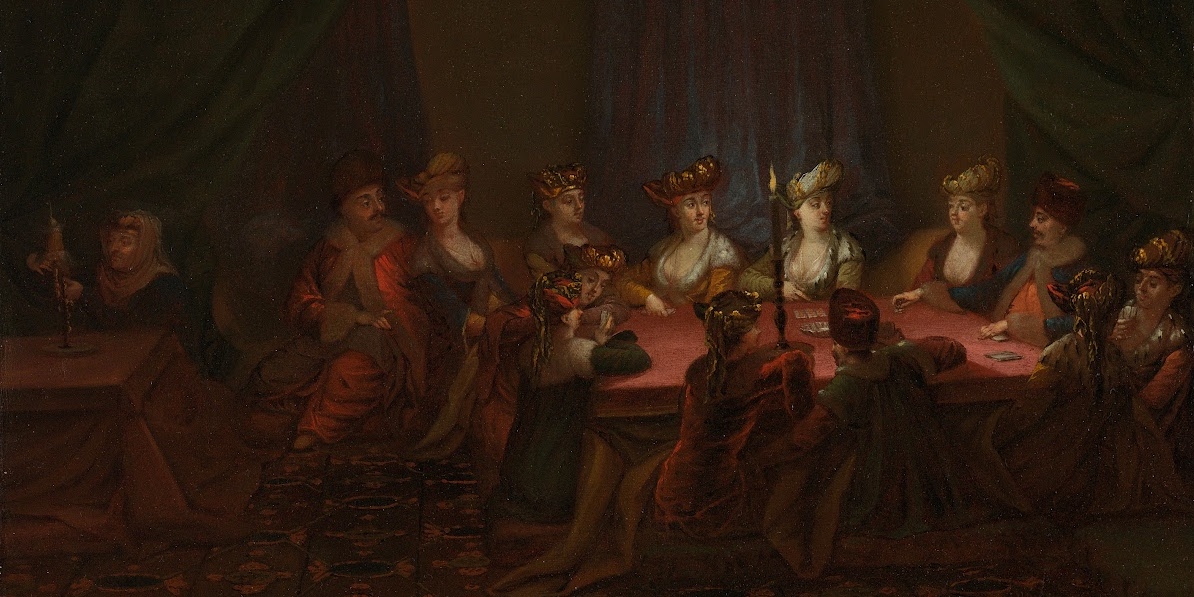Syrian Alawis under Ottoman Rule
Episode 303
Although the Alawi communities of Syria have played an important role in the politics of the 20th century, the longer history of these communities has often been obscured by generalizations and discourses of mystification. In this episode, we talk to Stefan Winter about the history of the Alawis over the centuries, which is the subject of his new book A History of the ‘Alawis: From Medieval Aleppo to the Turkish Republic. In particular, we focus on the ways in which Syrian Alawis were incorporated into the Ottoman Empire and experienced changes in Ottoman politics and governance. We also examine the social and economic history of the Alawis during the early modern period and the encounter with modernity.
Stream via SoundCloud
Contributor Bios
 |
Stefan Winter (PhD, University of Chicago, 2002) is associate professor of history at the Université du Québec à Montréal (UQÀM). His work focuses mainly on Ottoman government and tribal society in the provinces of Tripoli, Aleppo and Raqqa in the early modern period. He has been invited professor at the EPHE and the EHESS in Paris, and was associate researcher at Bilkent University in 2014-2015. |
 |
Chris Gratien holds a Ph.D. from Georgetown University's Department of History and is currently an Academy Scholar at the Harvard Academy for International and Area Studies. His research focuses on the social and environmental history of the Ottoman Empire and the modern Middle East. He is currently preparing a monograph about the environmental history of the Cilicia region from the 1850s until the 1950s. |
Recommended Episodes
 |
Ayfer Karakaya-Stump | #148
3/8/14
|
Alevis in Ottoman Anatolia | |
 |
Molly Greene | #217
12/18/15
|
Greeks in the Ottoman Empire | |
 |
Zoe Griffith | #130
11/18/13
|
Mulberry Fields Forever | |
 |
Heghnar Watenpaugh | #157
5/31/14
|
Imperial Architecture and Urban Experience in Ottoman Aleppo | |
 |
Elyse Semerdjian | #266
9/4/16
|
Gendered Politics of Conversion in Early Modern Aleppo | |
 |
Reem Bailony | #207
11/4/15
|
Transnationalism and the 1925 Syrian Revolt |
Credits
Episode No. 303
Release Date: 5 March 2017
Recording Location: Boston, MA
Audio editing by Chris Gratien
Music: from archive.org - Baglamamin Dugumu - Necmiye Ararat and Muzaffer; Katibim (Uskudar'a Gider iken) - Safiye Ayla Special thanks to Kara Güneş for permission to use the composition "Istanbul" in the outro
Images and bibliography courtesy of Stefan Winter
Release Date: 5 March 2017
Recording Location: Boston, MA
Audio editing by Chris Gratien
Music: from archive.org - Baglamamin Dugumu - Necmiye Ararat and Muzaffer; Katibim (Uskudar'a Gider iken) - Safiye Ayla Special thanks to Kara Güneş for permission to use the composition "Istanbul" in the outro
Images and bibliography courtesy of Stefan Winter
Images
 |
| "Antioch in the 19th Century" by Redaway based on painting by Bartlett (Collection Estampes, Bibliothèque Nationale, Paris) |
 |
| 'Alawi maqam (shrine) at Bahluliyya |
Select Bibliography
| A History of the 'Alawis by Stefan Winter Princeton University Press |
Dussaud, René. Histoire et religion des Nosairîs (Paris: Bouillon, 1900).
Halm, Heinz. Die Islamische Gnosis: Die Extreme Schia und die ‘Alawiten (Zurich: Artemis, 1982).
Harfush, ‘Ali ‘Abbas. Al-Maghmurun al-Qudama’ fi Jibal al-Ladhiqiyya (Damascus: Dar al-Yanibi‘, 1996).
Kerr, Michael and Craig Larkin, eds., The Alawis of Syria: War, Faith and Politics in the Levant (London: Hurst, 2015).
Makdisi, Ussama. The Culture of Sectarianism: Community, History and Violence in Nineteenth-Century Ottoman Lebanon (Berkeley, etc.: University of California Press, 2000).
Mertcan, Hakan. Türk Modernleşmesinde Arap Aleviler (Tarih, Kimlik, Siyaset) (Adana: Karahan Kitabevi, 2014).
Procházka-Eisl, Gisela, and Stephan Procházka. The Plain of Saints and Prophets: The Nusayri-Alawi Community of Cilicia (Southern Turkey) and Its Sacred Places. Wiesbaden: Harrassowitz Verlag, 2010.
‘Uthman, Hashim. Tarikh al-Ladhiqiyya 637m-1946m (Damascus: Wizarat al-Thaqafa, 1996).










Comments
I admire very much your work.
I hope maybe you will be kind to give me some details.
I want to know more about teresa sayd, descendent from sultan cem. Was she married to sultan Ahmed I?
What are the details of their marriage and why they divorced.
Thank you
Post a Comment
Due to an overwhelming amount of spam, we no longer read comments submitted to the blog.